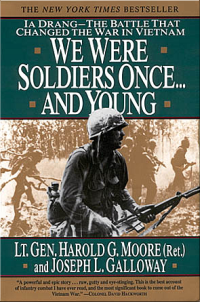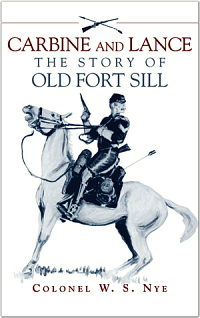American Thought
Noah Webster, shortly after the end of the Revolutionary War, publishes an essay in his American Magazine outlining his reasons and methods for revising the educational system in the new republic.

On the EDUCATION of YOUTH in AMERICA.
NEW YORK, 1788.
—————

WITH respect to morals and civil society, the other view in which I proposed to treat this subject, the effects of Education are so certain and extensiv, that it behooves every parent and guardian to be particularly attentiv to the characters of the men, whose province it is to form the minds of youth.
From a strange inversion of the order of nature, the cause of which it is not necessary to unfold, the most important business in civil society, is, in many parts of America, committed to the most worthless characters. The Education of youth, an employment of more consequence than making laws and preaching the gospel, because it lays the foundation on which both law and gospel rest for success; this Education is sunk to a level with the most menial services. In most instances we find the higher seminaries of learning intrusted to men of good characters, and possessed of the moral virtues and social affections. But many of our inferior schools, which, so far as the heart is concerned, are as important as colleges, are kept by men of no breeding, and many of them, by men infamous for the most detestable vices.* Will this be denied? will it be denied, that before the war, it was a frequent practice for gentlemen to purchase convicts, who had been transported for their crimes, and employ them as private tutors in their families?
* How different this practice from the manner of educating youth in Rome, during the flourishing ages of the republic! There the attention to children commenced with their birth; an infant was not educated in the cottage of a hireling nurse, but in the very bosom of its mother, whose principal praise was, that she superintended her family. Parents were careful to choose some aged matron to take care of their children; to form their first habits of speaking and acting; to watch their growing passions, and direct them to their proper objects; to guard them from all immodest sports, preserve their minds innocent, and direct their attention to liberal pursuits.
“—Filius—non in cella emptæ nutricis fed gremio ac finu matris educabatur, cujus præcipua laus, tueri domum, et infervire liberis. Eligebatur autem aliqua major natu propinqua, cujus probatis spectatilque moribus, omnis cujuspiam familiæ soboles committeretur, coram qua neque dicere fas erat quod turpe dictu, neque facere quod inhonestum factu videretur. Ac non studia modo curasque, sed remissiones etiam lufus que puerorum, sanctitate quadam ac verecundia temperabat.” In this manner were educated the Gracchi, Cæsar, and other celebrated Romans. “Quæ disciplina ac severitas eo pertinebat, ut sincera et intergra et nullis pravitatibus detorta unins eujusque natura, toto statem pectore, arriperet artes honestas.”—Tacitusdc Oral. Dial. 28.
The historian then proceeds to mention the corruption of manners, and the vicious mode of Education, in the later ages of Rome. He says, children were committed to some maid, with the vilest slaves; with whom they were initiated in their low conversation and manners. “Horum fabulis et errpribui teneri statim et rudes animi imbuuntur; nee quis quam in toto domo pensi habet, quid coram infante domino suit dicat aut faciat.”—Ibm. 23.
Gracious Heavens! Must the wretches, who have forfeited their lives, and been pronounced unworthy to be inhabitants of a foreign country, be entrusted with the Education, the morals, the character of American youth?
Will it be denied that many of the instructors of youth, whose examples and precepts should form their minds for good men and useful citizens, are often found to sleep away, in school, the fumes of a debauch, and to stun the ears of their pupils with frequent blasphemy? It is idle to suppress such truths; nay more, it is wicked. The practice of employing low and vicious characters to direct the studies of youth, is, in a high degree, criminal; it is deftructive of the order and peace of society; it is treason against morals, and of course, against government; it ought to be arraigned before the tribunal of reason, and condemned by all intelligent beings. The practice is so exceedingly absurd, that it is surprising it could ever have prevailed among rational people. Parents wish their children to be well bred, yet place them under the care of clowns. They wish to secure their hearts from vicious principles and habits, yet commit them to the care of men of the most profligate lives. They wish to have their children taught obedience and respect for superiors, yet give them a master that both parents and children despise. A practice so glaringly absurd and irrational has no name in any language! Parents themselves will not associate with the men, whose company they oblige their children to keep, even in that moft important period, when habits are forming for life.*
* The practice of employing low characters in schools is not novel—Ascham, preceptor to Queen Elizabeth, gives us the, following account of the practice in his time. “Pity it is that commonly more care is had; yea and that among very wise men, to find out rather a cunning man for their horse, than a canning man for their children. They say, nay, in word; but they do so, in deed. For to one they will give a stipend of two hundred crowns, and loth to offer the other two hundred Shillings. God, that sitteth in the Heaven, laugheth their choice to scorn and rewardeth their liberality as it should: for he suffereth them to have tame and well ordered horses; but wild and unfortunate children: and therefore in the end they find more pleasure in their horse, than comfort in their child.”
This is old language, but the facts stated are modern truths. The barbarous Gothic practice has survived all the attacks of common sense, and in many parts of America, a gentleman’s groom is on a level with his schoolmaster, in point of reputation. But hear another authority for the practice in England.
“As the case now stands, those of the first quality pay their tutors but little above half so much as they do their footmen.”—Guardian, No. 94.
“‘Tis monstrous indeed that men of the best estates and families are more felicitous about the tutelage of a favorite dog or horse, than of their heirs male.”—Ibm.
Are parents and guardians ignorant, that children always imitate those with whom they live or associate? That a boy, bred in the woods, will be a savage? That another, bred in the army, will have the manners of a soldier? That a third, bred in a kitchen, will speak the language, and possess the ideas, of servants? And that a fourth, bred in genteel company, will have the manners of a gentleman? We cannot believe that many people are ignorant of these truths. Their conduct therefore can be ascribed to nothing but inattention or fear of expense. It is perhaps literally true, that a wild life among savages is preferable to an Education in a kitchen, or under a drunken tutor; for savages would have the mind uncorrupted with the vices, which reign among slaves and the depraved part of civilized nations. It is therefore a point of infinite importance to society, that youth should not associate with persons whose manners they ought not to imitate; much less should they be doomed to pass the most susceptable period of life, with clowns, profligates and slaves.
There are people so ignorant of the constitution of our natures, as to declare, that young people should see vices and their consequences, that they may learn to detest and shun them. Such reasoning is like that of the novel writers, who attempt to defend their delineations of abandoned characters; and that of stage players, who would vindicate the obscene exhibitions of a theater; but the reasoning is totally false.* Vice always spreads by being published; young people are taught many vices by fiction, books or public exhibitions; vices, which they never would have known, had they never read such books or attended such public places. Crimes of all kinds, vices, judicial trials necessarily obscene, and infamous punishments, should, if possible, be concealed from the young. An examination in a court of justice may teach the tricks of a knave, the arts of a thief, and the evasions of hackneyed offenders, to a dozen young culprits, and even tempt those who have never committed a crime, to make a trial of their skill. A newspaper may spread crimes; by communicating to a nation the knowlege of an ingenious trick of villainy, which, had it been suppressed, might have died with its first inventor. It is not true that the effects of vice and crimes deter others from the practice; except when rarely seen. On the other hand, frequent exhibitions either cease to make any impressions on the minds of spectators, or else reconcile them to a course of life, which at first was disagreeable.
* The fact related by Justin, of an ancient people, will apply universally. “Tanto plus in illis proficit victiorum ignoratio, quam in his cognitio virtutis.” An ignorance of vice has a better effect, than a knowlege of virtue.
“Vice is a monster of so frightful mein,
As to be hated, needs but to be seen;
Yet seen too oft, familiar with her face,
We first endure, then pity, then embrace.”
For these reasons, children should keep the best of company, that they might have before them the best manners, the best breeding, and the best conversation. Their minds should be kept untainted, till their reasoning faculties have acquired strength, and the good principles which may be planted in their minds, have taken deep root. They will then be able to make a firm and probably a successful resistance, against the attacks of secret corruption and brazen libertinism.
Our legislators frame laws for the suppression of vice and immorality; our divines thunder, from the pulpit, the terrors of infinite wrath, against the vices that stain the characters of men. And do laws and preaching effect a reformation of manners? Experience would not give a very favorable answer to this inquiry. The reason is obvious; the attempts are directed to the wrong objects. Laws can only check the public effects of vicious principles; but can never reach the principles themselves; and preaching is not very intelligible to people, till they arrive at an age when their principles are rooted, or their habits firmly established. An attempt to eradicate old habits, is as absurd, as to lop off the branches of a huge oak, in order to root it out of a rich soil. The most that such clipping will effect, is to prevent a further growth.
The only practicable method to reform mankind, is to begin with children; to banish, if possible, from their company, every low bred, drunken, immoral character. Virtue and vice will not grow together in a great degree, but they will grow where they are planted, and when one has taken root, it is not easily supplanted by the other. The great art of correcting mankind therefore, consists in prepossessing the mind with good principles.
For this reason society requires that the Education of youth should be watched with the most scrupulous attention. Education, in a great measure, forms the moral characters of men, and morals are the basis of government.* Education should therefore be the first care of a Legislature; not merely the institution of schools, but the furnishing of them with the best men for teachers. A good system of Education should be the first article in the code of political regulations; for it is much easier to introduce and establish an effectual system for preserving morals, than to correct, by penal statutes, the ill effects of a bad system. I am so fully persuaded of this, that I shall almost adore that great man, who shall change our practice and opinions, and make it respectable for the first and best men to superintend the Education of youth.
* Plus ibi iconi mores valent, quam alibi bonæ leges.
Tac. de Mor. Germ. 19.
[ Continue to § 11 ] [ ☞ INDEX ]


















Recent Comments